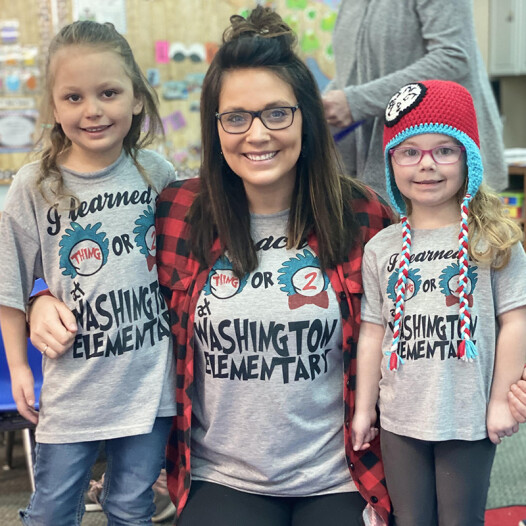Location
Washington Elementary School
1406 North Grand Avenue
Charles City IA 50616
Washington Elementary School
1406 North Grand Avenue
Charles City IA 50616
Breakfast doors open 7:50 AM
Classes begin 8:10 AM
Classes dismiss 3:10 PM
Bus pick-up north side of campus
Car pick-up in drive-thru lane
Washington serves students
preschool -1st grade.
We can help.
Call 641.257.6570
(M-F 7:30AM - 4PM)
To report an absence, call 641.257.6571
Email washington@charlescityschools.org
Fax 641.257.6573
Building tours available upon request.

Each Sunday night around 6 p.m., we send home the Washington Weekly packed full of information for your household to plan their week ahead. The update is sent through text message to your phone and email to your inbox. The latest copy can always be found here as well.
Principal, Washington Elementary School
Administrative Support
Nurse
Counselor
Special Education Teacher
Teacher-Kindergarten
Special Education Teacher
Teacher-Kindergarten
Teacher-Grade 1
Teacher-Washington/Lincoln/Middle School Art
Teacher-Preschool
K-12 Teacher Librarian
Teacher-K-6 Vocal Music
Teacher-Title 1
Teacher-PreK/Special Education
Teacher-Title 1
1st Grade Teacher
Teacher-Kindergarten
K-12 ELL
Teacher-Grade 1
Teacher-Kindergarten
Teacher-Special Education
Talented & Gifted Teacher
Teacher-Kindergarten
Teacher-Grade 1
Early Childhood Special Education
Teacher-PE
Paraeducator
Paraeducator
Paraeducator
Paraeducator
Head Custodian
Paraeducator
Custodian
Library Assistant
Food Service
Paraeducator
Paraeducator
Nurse Assistant
Food Service
Paraeducator
Food Service
Paraeducator
Paraeducator
Nurse Assistant
Paraeducator
Native Language Interpreter-ELL
Custodian
Paraeducator
Paraeducator
Paraeducator
Paraeducator
Homeschool Assistance Program Coordinator
Paraeducator